More than 100,000 Ukrainians are waiting to get visas to come to Canada
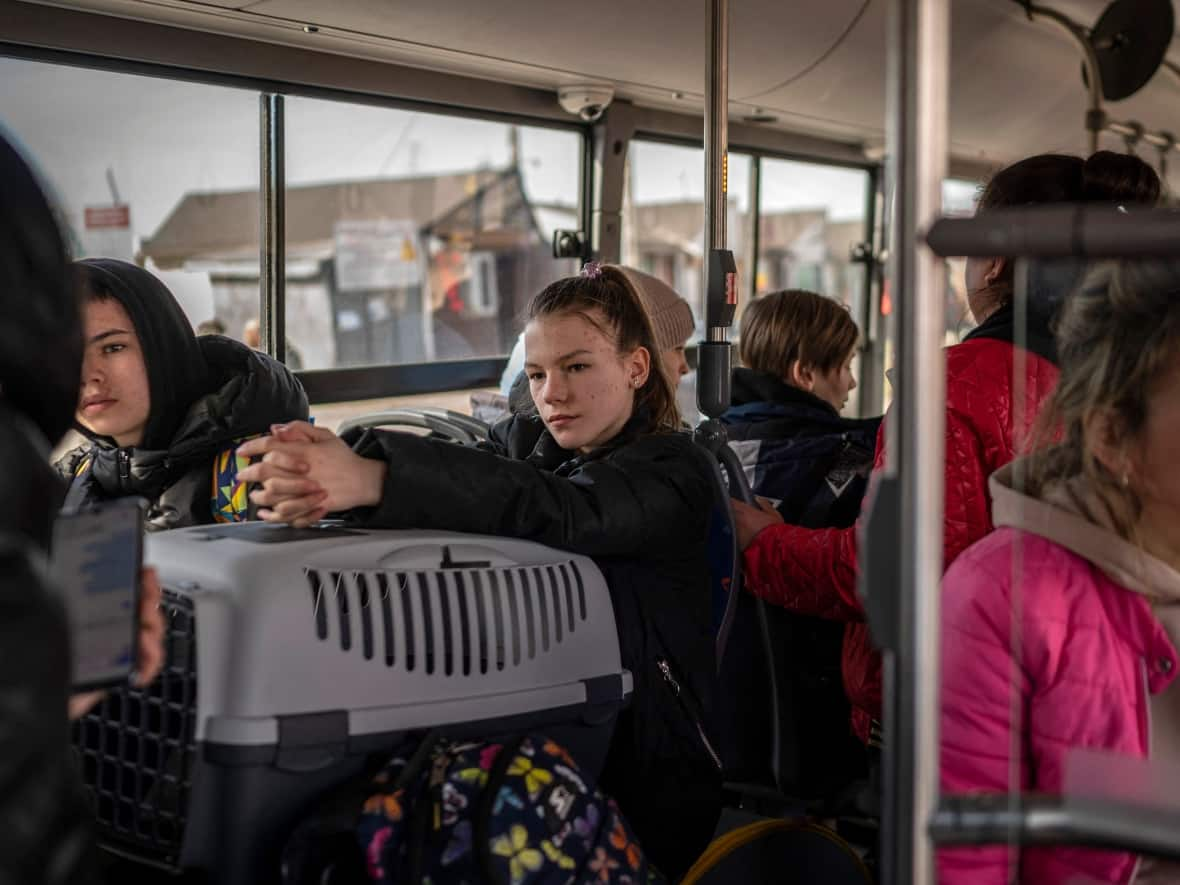
A lucky Ukrainian family made it to safety in Saskatoon on Tuesday, but many visa applicants have been waiting in Ukraine and neighbouring countries for more than a month to come to Canada.
According to numbers from Immigration, Refugees and Citizenship Canada (IRCC), more than 100,000 Ukrainians are waiting to get visas to come to Canada.
"IRCC has received over 163,747 applications from Ukrainian nationals between March 17 and April 19 and has since approved over 56,633 applications," the department said in a statement.
Yaroslav Kravchuk and his family, who arrived in Saskatoon this week, are among the lucky ones. He fled Kyiv with his wife and three kids to a village near Bucha.
"It was very close to all shots, bombing and everything," Kravchuk said.
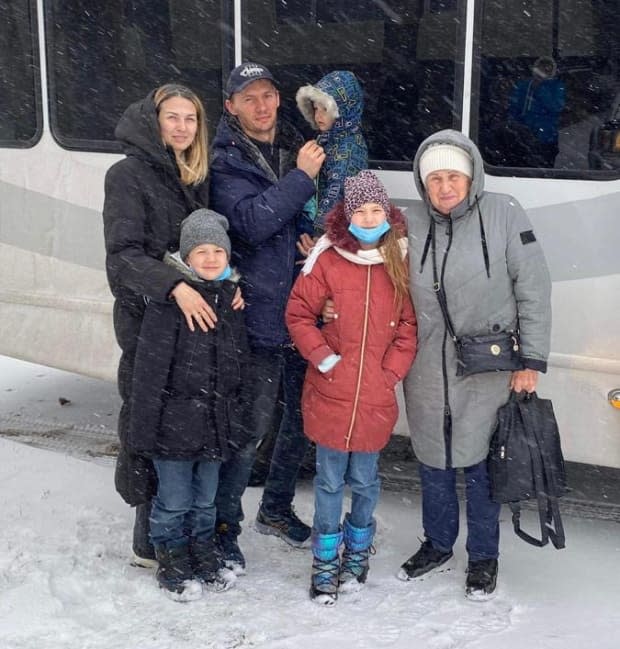
The family traveled to Poland to work on their applications for the Canada-Ukraine Authorization for Emergency Travel (CUAET) immigration stream.
It took them eight hours to complete the applications. They had to consult YouTube for help, as the process is only available in English or French.
"I didn't find any available biometric appointment. Online service was overloaded. We went in person and my wife stood waiting from 3 p.m. to 10 p.m.," he said.
After submitting their passports, it took two weeks to get visas since "families with little children were on priority."
"But it's not very fast now, as it's taking almost six weeks of wait," he said.
On Easter Sunday, after a month's wait, North Battleford resident Maryna Shkarupa finally met her 16-year-old niece Kateryna Derevianko, who fled with her grandmother from Kryvyi Rih.
Shkarupa had immediately informed her niece of a passport pick-up place in Warsaw when she received the email on April 12. Derevianko was staying in Poznan, three hours' drive away from Warsaw.
"My niece was allotted the 229 number and got later informed by the visa centre that she doesn't have a chance that day as they were still processing people from the past two days," Shkarupa said.
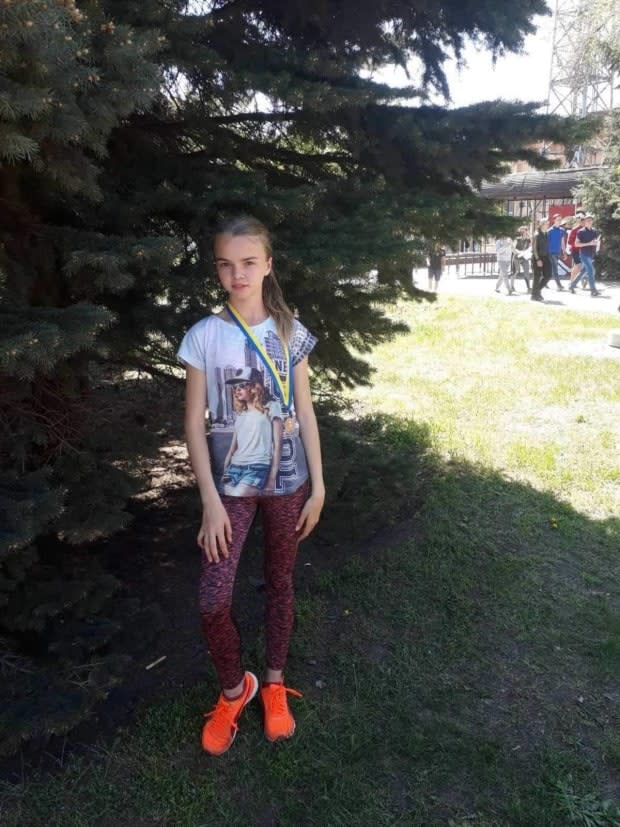
Halfway back to Poznan, her niece came across information on Telegram channels saying the centre was giving out passports for numbers below her. Derevianko returned but still did not receive her passport that day.
"A 16-year-old girl, all by herself in a strange country. We all were worried. Next day she was there at 8 a.m. and by 10, she got her passport with a visa," she said.
"We were lucky, as many people are still waiting. My friend submitted passports for her family a day later than us, but they are still waiting in Warsaw."
Waiting for more than a month
Tetiana Chudiiovych fled Kyiv shortly after the Russian invasion and made it to safety in Italy with her two children. They submitted their visa applications on March 18, a day after the new CUAET immigration program was announced, but are still waiting.
"It has been more than a month. We're just waiting. I've changed my flight four times by now," the 39-year-old said.
When she last spoke with CBC, Chudiiovych was hoping to arrive in Saskatoon by early April. She had initially booked her flight for April 14, but now is worried about postponing her plans for May 14.
Besides that expenditure, she has to bear the expenses of staying in Italy, including 200 euros for medical insurance. Chudiiovych said many people went back to Ukraine while waiting for visas, as they couldn't bear Europe's high prices.

She said calling the IRCC's helpline number means waiting for hours to connect with "an agent who just has general information."
"It's a psychological stress when there's war in my country and the other country tells me please wait while we figure out what we do with you and your children," she said.
"I don't want to begin a new life, I want to continue my life."
IRCC said it is taking a risk-based approach to biometric screening while closely monitoring the operational capacity of its offices and visa application centres (VACs) in Europe.
"Additional biometric capacity has been added to the Visa Application Centre network and Canadian missions in Poland, Austria, Romania and Germany," the department said.
"IRCC has opened new temporary VACs for biometric collection in Warsaw, Poland, and Bratislava, Slovakia, and additional locations are scheduled to open soon in Budapest, Hungary and Krakow, Poland."
All the families CBC Saskatchewan spoke with a week after the CUAET was announced are still waiting to come. CBC also spoke with Ukrainians waiting to come to Canada from Berlin and Spain who reported faster processing times.
"The system works strangely. People who took biometric after us have already received a visa, but those who gave biometric before us, still haven't received even a confirmation," Daria Zaporozhets said from Poland.
Zaporozhets fled Kyiv with her family, her two big dogs, four cats and two non-poisonous snakes. It took eight hours of traffic to cross the city to finally get to the border.
"We stood for nine hours at the Polish border with all my pet crates. I feel like I'll die from the tiredness," she said.
The family of three finally made it to a refugee camp in Poland.
She said the applications "were even difficult for people in Canada to understand." They submitted their passports on April 1.
"More than 10 days passed, we heard nothing. We didn't know where the passports were. No communication, complete silence, we just waited," she said.
On Friday morning, she heard that her visa was on the way, but the family still is waiting to come to Saskatoon.
Wait putting vulnerable people in harm's way: Canadian helping fleeing Ukrainians
Oksana Bushai and Hanna Bincheva have been friends since they were five and attended the same school in Zaporizhzhia, a city in southeastern Ukraine.
The 22 -year-olds connected with CBC from Vienna with the aid of a translator.
"We wanted to leave because the situation is dangerous in our city and there are no jobs," Bushai said.
The two traveled from Zaporizhzhia to Lviv in a crowded train, despite the train workers informing them "their safety isn't guaranteed and the train can be shot anytime."
"The windows were all closed. We were traveling inside a dark train in the night to come to Lviv. In the morning, 30 minutes away from Lviv, my mom called to inform us that the city was under attack," Bushai said.
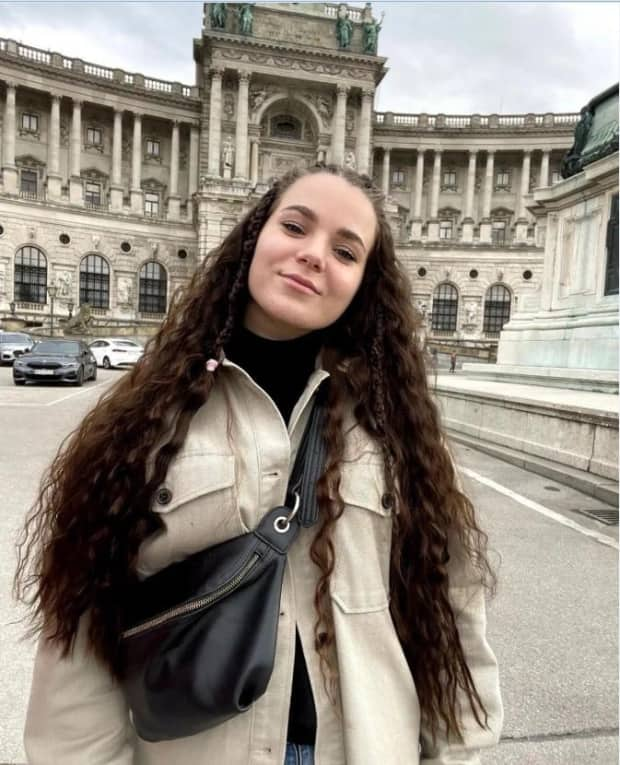
The duo made it to Uzhhorod, four kilometres away from the Slovakian border, crossed the border and took a bus to Bratislava.
"In Bratislava, we took tickets to Vienna where we finally met a Montreal woman who helped us with applications," Bushai said.
All this while, Brienna Buchanan-Cordell from Collingwood, Ont., who will be hosting the women, kept tracking them on iPhone.
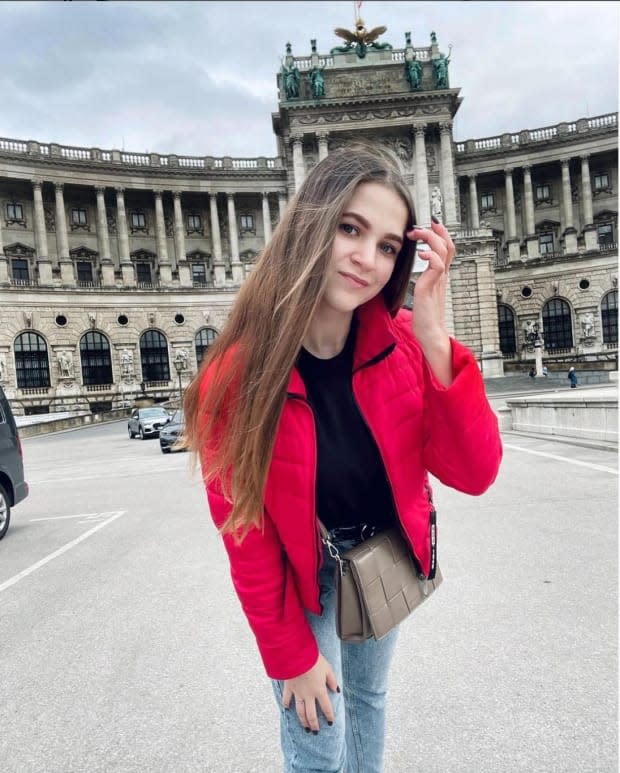
They submitted their applications on March 25. While Bushai has already received her passport, Bincheva is still waiting.
"I'm very upset waiting. I'm worried it might get lost. I want to come to Canada soon, learn English, get a job and support my family and do some painting," Bincheva said.
Buchanan-Cordell also spoke with a visa official on Bincheva's behalf, but was told "to wait 20 days before they inquire again".
The women say they almost got duped by a B.C. man in a Facebook group who vouched to pay for travel and accommodation them with a promise of jobs.
"He sent us his documentation and the group's administrator, Kelly Glass, also reached out to him. Kelly found that his passport had expired," Bushai said.
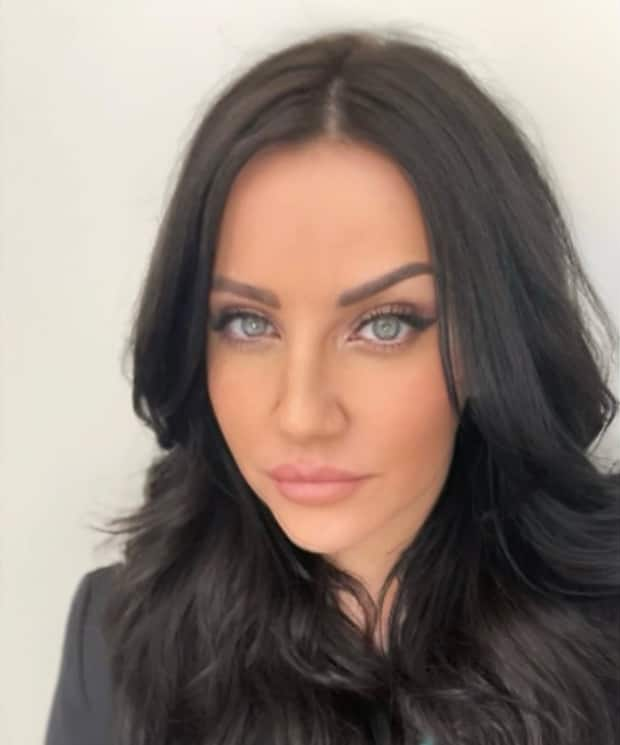
Kelly Glass said the man's identification was questionable, and since he said he was going to host four girls under the age of 23 in a remote B.C. community, she intervened and connected the girls with Buchanan-Cordell.
"Individuals in super vulnerable positions are more susceptible to predatory behaviour," Glass, who aids fleeing Ukrainians seeking help in her Facebook group, said.
"Many are struggling with the visa process and barriers like language and courier process are adding to the delay. There's minimal support on the ground for these individuals."

While Buchanan-Cordell has already prepared her basement for the women's arrival, she has spent close to $3,000 just changing their Airbnbs and started a fundraising page for them.
"It's very expensive and exhausting but I feel for them. I can't imagine doing all this and still not getting any updates on applications," Buchanan-Cordell said.
'Not so fast'
CUAET was billed as a speedy process to bring displaced Ukrainians as temporary residents.
"Only 10,000 people have actually arrived in Canada when over 100,000 applications have been submitted," Mary Mokrushyna, director at Ukrainian Diaspora Support Canada (UADSC), a non-profit in Ottawa assisting fleeing Ukrainians, said.
She said there is a lack of standardization and uniformity across various visa centres in Europe, since places like Vienna are faster than Warsaw.
Mokrushyna said they had 1,100 Ukrainians on their list but "only 89 people are ready to fly."
"Ten per cent in two months when the government originally said it would take only 14 days to process is a big stretch," Zack Nethery, another director at UADSC, said.
"People in Poland are hosting people thinking it will be two weeks when it's starting to be two months. That welcome is starting to wear."

UADSC aids applicants with language assistance to fill out forms. Nethery said the requirement to send passports via courier is causing further delays.
"The supply chain is so bad that the couriers are jammed up that they're doing the services once a week, causing an extra delay of a week for applicants," Nethery said.
"Even within Canada, the information isn't spread evenly. I can only imagine internationally."
He said booking biometric appointments is similar to early days of booking a COVID vaccination.
"With COVID vaccination, they told you to check constantly, whereas here you're left figure out yourself."


